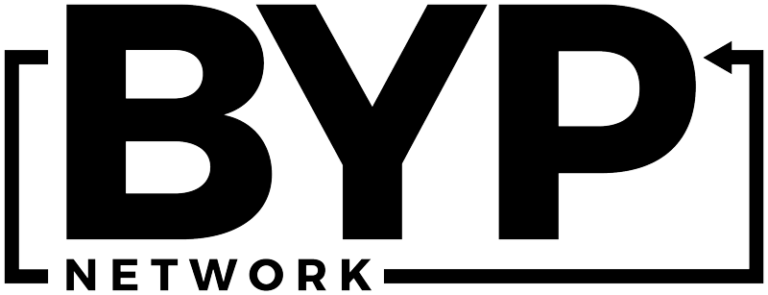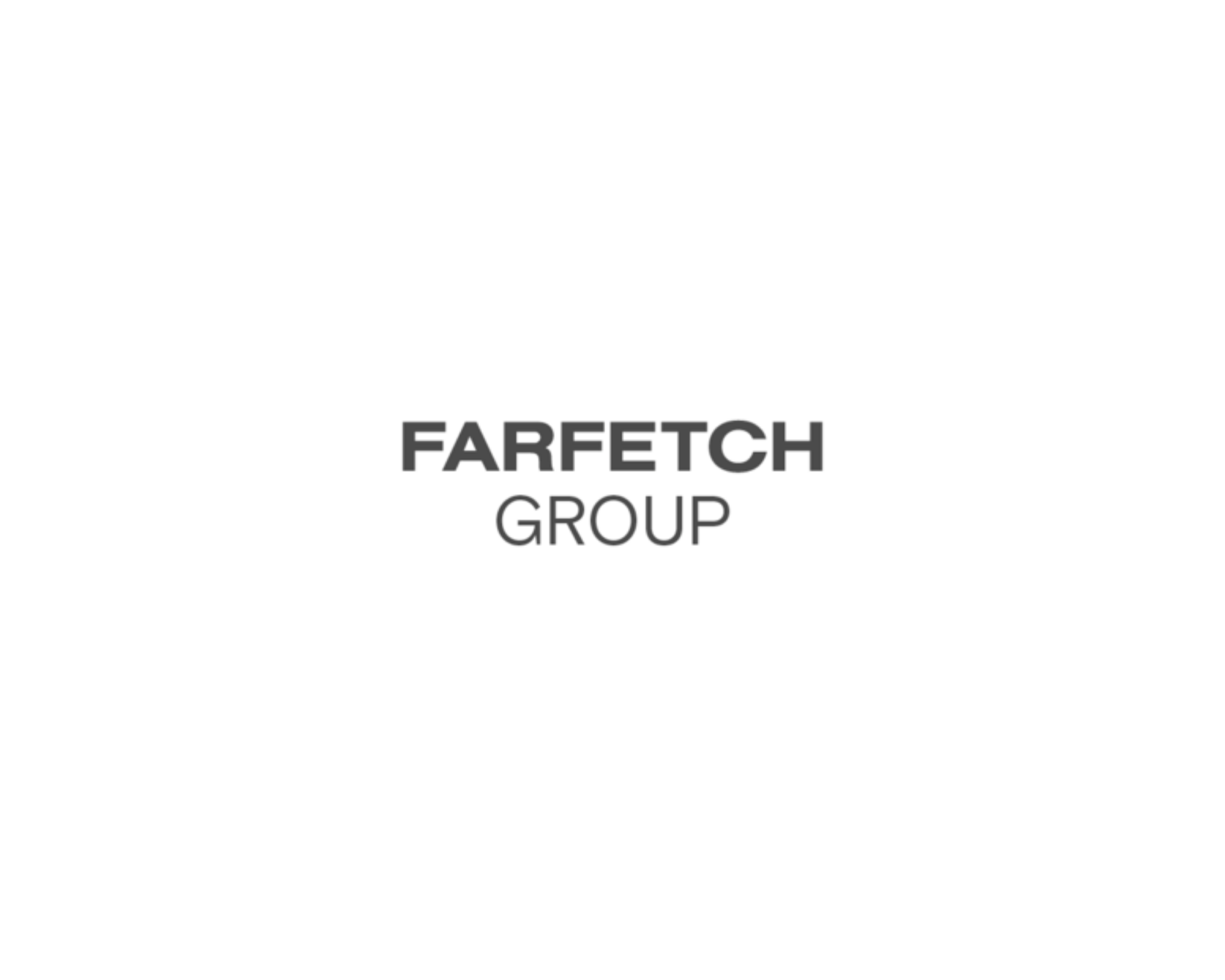BYP sat down with Anisa Marshall, Senior Head of Events at FARFETCH. In this interview she shares her inspiring accomplishments and first-hand experiences regarding her career trajectory. Combining humour with stimulating advice, Anisa takes the reader on an in-depth journey as to how she dominated her thriving career as a Black woman. She explains how the ideas of change or disruption can serve as positive incentives, ultimately encouraging each reader to do the same.

Anisa Marshall-Senior Head of Events
Tell us about your journey?
I come from a medical family and after enjoying science subjects at A-level, I continued this by studying BSc Honours Cell Biology at The University of Glasgow, taught by the first professor of cell biology in the UK. As much as I loved studying science and donning my lab coat every day, I have always been super sociable and realised that it’s actually not conducive to work in groups when you’re working in the world of science. Everyone takes on a different part of the experiment separately and the individual findings are then put back together again at the end. So I knew that I would need to work in a more sociable setting.
As I neared the end of my degree, the pressure was on for me to figure out what I wanted to do. After watching Sliding Doors and seeing Gwyneth Paltrow play a Public Relations Executive, I had an epiphany and decided that PR was for me. I had no idea about PR, back then it was quite an emerging career path so I concluded that you just had to look great in gorgeous clothes, live somewhere nice like Westbourne Grove, be sociable and entertain clients. I couldn’t have been more wrong, of course, but that was enough for me. So I looked up the top ten earning PR agencies and sent my CV to them. Grayling PR was the first agency to reply and so instead of taking a gap year, I spent three years at the Bristol division of this worldwide group, cutting my teeth in the world of PR & Communications.
I then segued into events after the frustrations of the seemingly endless cycle of always needing to better the previous month’s quantity of coverage for a client. I realised that what I found more rewarding was to see something come to fruition, see something be delivered and then start on something new. Events, something which many PR agencies delivered at the time, seemed to offer that to me.
I moved to London and joined the party arm of Sir Bob Geldof’s media communication group; Ten Alps Communications, now known as TenAlps Live, where I stayed for three years. This is where my events career truly began. It was a dynamic and exciting agency to work for with a lot of brilliant minds and worthy events under the watchful eye of Sir Bob Geldof. My swan song event was Live 8, which was a privilege to be a part of. Ten Alps Comms was also my first foray into the world of luxury brands and I loved it.
I then stayed agency side by joining a small, fast growing events agency, delivering some of the most sought-after events in the London events calendar and really honed in on luxury clients in sectors including beauty, fashion, retail and publishing houses – with one of our biggest retained clients being Condé Nast.
After a bout of freelancing – working with a variety of top London agencies with an incredible portfolio of brands – I then decided to bring my skills and agency side experience in-house at one luxury brand and joined FARFETCH. First on a project basis and then remaining to head up the function – over five years ago now!
What are some of your key highlights/turning points/inspirational moments in your career?
I am proud of my career and many moments stand out. But if there’s one theme that seems to be a constant for both key professional moments and for personal development reasons, it’s change or disruption.
Every professional event I was involved in which stands out, represented a moment of change in an industry – from Live 8, which was about ending poverty, to producing an event for French label Vionnet to celebrate its 100 years and its new future, to FarfetchOS, a fash-tech conference hosted by FARFETCH that unveiled its Store of the Future vision to 200 luxury retailers and brands – these were moments that were about affecting and celebrating a shift.
Likewise, my most memorable moments of personal development came from a state of change – from stepping out of my comfort zone and being brave enough to try something new for my career. These moments included making the transition from PR to events and moving from Bristol to London. This move meant I had to take a pay cut and effectively start again – not an easy thing to do, and I had to leave my ego at the door and just learn as much as I could from my team at the time.
I also had to embrace change and bravery when I became a freelancer. It’s not easy making your own way, having to chase down work and really put yourself out there. But, what it gave me was an incredible and broad reaching experience, both from a brands and industries point of view, but crucially, from a leadership point of view – having to flex my style to meet every different client’s needs.
As a Black woman that has often moved in white spaces, what were some of your experiences? What were some of your observations?
I’ve moved in white spaces my entire life, from the market town in Hertfordshire where we were at one time the only ‘black family in the village’, to the girls school I attended where, out of almost 1000 girls, I was again the only black girl, to my ballet classes; seeing my reflection in the long ballet mirrors in contrast to my white friends, to play-dates to birthday parties to school trips to discos in the local rugby club to my further places of study and then eventually places of work.
In my early days in the corporate world, I realised very quickly that there was a lot that I couldn’t control. I couldn’t control whether a potential new client would look surprised that between myself and a white colleague, I was leading a pitch. I couldn’t control someone’s thinly veiled surprise when after speaking to me on the phone and enthusiastically setting up a meeting, that the person they had pictured in their minds from the way I spoke, didn’t match the person introducing themselves at reception. My mother was very exacting and set incredibly high standards for me and my brothers so I presented myself very well. As a result, in professional corporate settings, these experiences that I observed and received were often micro-aggressions and nothing obviously overt. Obviously, death by a thousand cuts is no less tortuous than a knife to the jugular, but it was always wrapped up in a rather polite, apologetic bow and in some ways more manageable. I enjoyed proving people wrong and was lucky that in the early days, every company I joined had someone senior to me, who saw something in me, took me under their wing, supported and encouraged me.
My freelance gigs were different in that you were specifically brought in to deliver a project. You were being paid a day rate to do your job and so it always felt less about you fitting into the culture of a company and more about being valued on the quality of your work as a practitioner and as a professional.

I also saw a lot of modelling behaviour by my white peers – of confidence, even when they weren’t very experienced, even when they weren’t sure of the answers. The one consistent behaviour that I saw demonstrated was confidence. Being someone who always had to be thoroughly prepared and be able to ‘back it up’, it always intrigued me that so many of my peers were essentially ‘winging it’ for want of a better word. They were confident, buoyed perhaps by their privilege but either way, you believed in them and somehow, they would always muddle through and learn on the way. That mindset and approach still doesn’t come to me naturally but I have learnt its value as a classic strategic approach- where you don’t have all the answers, but you get started and pivot as you go.
Many Black professionals have encountered scenarios where they have had to manage upwards regarding inclusion in their workplace. Have you had that experience and what was that like?
Whether you manage downwards, upwards or sideways, it’s about applying the same skills as the ones you use to be a good leader to your team. The ability to influence is an incredibly vital skill to have and works hand in hand with empathy but also emotional intelligence. That would enable you to move your personal feelings from the experience and help you to try and understand why your manager or boss might be behaving in the way they are. Are they under pressure from their direct line and taking it out on you? Are they unhappy at home or in other areas of their lives? I studied psychology in my first two years at university and with psychiatry being a constant presence in my family from a young age, those skills have definitely come in handy in those situations.

What does leadership mean to you?
Leadership means not only motivating your team but also inspiring them through your passion for the task ahead. This can only happen if they trust you, if you role-model the values that you stand by and demonstrate authenticity in your role. Empathy is another key quality to have and demonstrate again and again. It’s important that this isn’t just a passive skill that stays in your head and in your thoughts but that is something you actively demonstrate to others, especially the people whom you are leading. I imagine this was perhaps not high on the list of leadership qualities 10, even 5 years ago but now, especially in the last 12 months, I have recognised the need for empathy
I also think that a great leader has the ability to leave their ego at the door (I mean that in the psychoanalytical sense) and be open to feedback that will help you continue to grow as a great leader – which is again a demonstration of emotional intelligence. You need to be agile in your approach to your team members and try to pre-empt what they will think and why that might be; allowing you to spot potential and identity strengths – even if they don’t see it themselves. Then you can find opportunities to nurture and encourage it.
Finally, having a growth mindset also helps you to be a good leader. Having sight of the bigger picture and, rather than seeing certain outcomes as failures, see them as continuous learning and opportunities to grow is a very inspirational position to take and encourages your team to be brave and push the envelope, which can only be rewarding for them in terms of experience and project outcome.
What is the message you want to pass on to the Black women on BYP’s platform?
First and foremost try and identify what it is you want to aim for and ultimately achieve. Is it a complete career change? Is it a gear change within the same company, is it transferring your skills to another field or is it to start your own business? Then it’s about staying totally focussed on the end goal, staying out of your head, making a plan and just executing it. Try not to allow any space for inner demons, that self-critic that will try to talk yourself down or out of achieving it. Stay blinkered to anything else happening around you and totally focussed on your goal. And take it a step at a time. However small the steps, try to keep moving and don’t be afraid of not always having all the answers, do tiny tests and try to pivot as you go versus complete inertia.
The second thing, be really clear about what your values are and what you stand for, how to brand yourself, effectively build your own reputation and ensure that everything you do aligns with this and stays true to this. That authenticity will create real longevity in whatever role you assume.
Then it’s a case of building your arsenal of skills – ensuring you know your craft, filling any gaps there might be with training, mentoring, workshops, shadowing, etc. Once you are solid with this, learn how to package them up according to who your audience is and tailor your offering accordingly.

When it comes to Diversity & Inclusion, a lot of establishments operate under performative allyship. What are some of FARFETCH’s inclusion objectives/commitments and what makes them authentic?
The way that FARFETCH has approached its role regarding D&I and the way they have responded to that by creating a long term, future-looking plan and strategy; defining the scope of the task at hand with key objectives and results, as opposed to a quick fix, demonstrates that they are not being performative.
FARFETCH recognises the need for strong cultural foundations to be built with consistent values woven throughout every touchpoint of the business. The aim is for FARFETCH to be a leader in Conscious Inclusion. Driven by a newly appointed Director of Diversity & Inclusion, FARFETCH has committed to a Positively Inclusive strategy – championing diversity and inclusion in our workplace and the global fashion community.
What do you think BYP members who would like to work at FARFETCH should know prior to joining?
BYP members should know that it’s a super fast-paced company, with an agile, entrepreneurial culture. It is an inspiring place to work, where you regularly bear witness to or are involved in things that have never been done before – you feel part of moving the needle within the industry and that is an exciting place to be.
It is also a company that is very responsive to the needs of its Farfetchers, whether they be black employees, parents, ethnic & community groups or people in need of developmental or personal career support. This is encapsulated by our ‘FARFETCH For All’ commitment to building a consciously inclusive environment within FARFETCH.
It is a company that genuinely cares about mental and emotional wellbeing from the top down.
To join FARFETCH and be a part of their fast-paced and entrepreneurial space, visit their employer page here.
Check out the recent webinar FARFETCH hosted with BYP Network: Farfetch presents: So, you want to work in Marketing?






